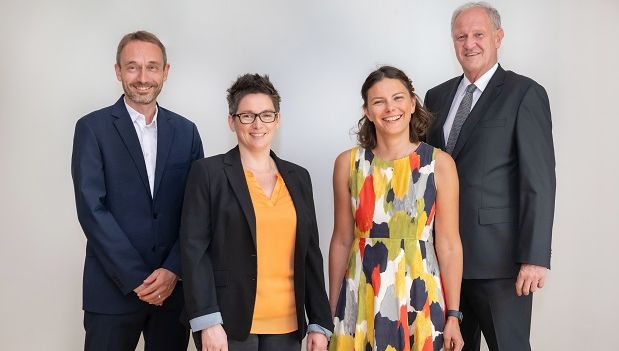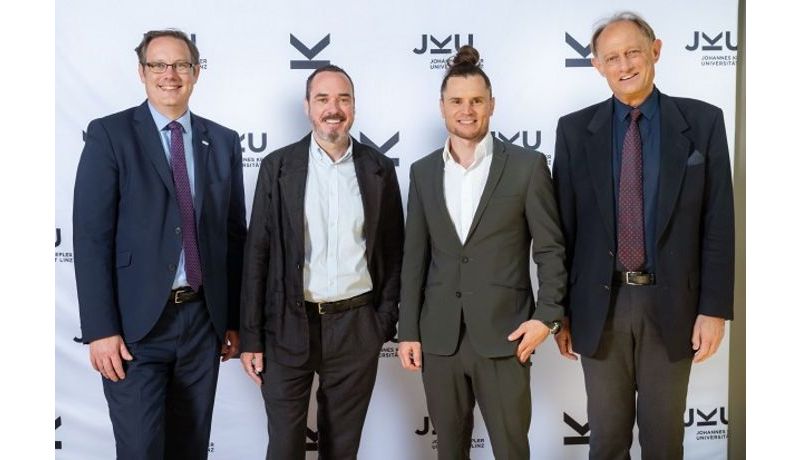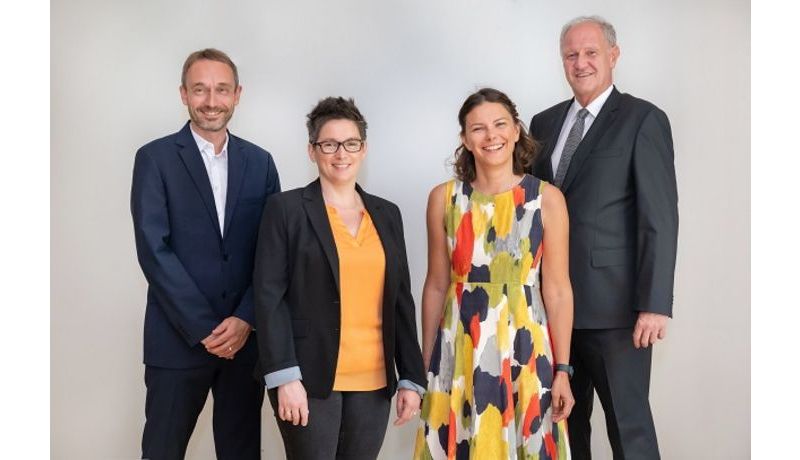New professors at the LIT and the School of Education (SoE) held their inaugural lectures at the JKU in June.

University professors Günter Klambauer, Johannes Reichl, Marie-Luise Pitzl-Hagin and Lana Ivanjek provided insight into their respective areas of research.
Univ. Prof. Dr. Günter Klambauer (LIT AI Lab) held his inaugural lecture titled “The Rise of Artificial Intelligence in Life Sciences” on June 4, elaborating on how, in the last ten years, artificial intelligence has succeeded in becoming indispensable to medical research.
Univ. Prof. Dr. Johannes Reichl’s (LIT Future Energy Lab) inaugural lecture titled “The Energy Transition - Type and Magnitude of the (Real) Challenges” not only focused on a number of important challenges related to energy transition, but also assessed its quantitative significance in terms of energy and climate transition, and outlined potential approaches for the future.
The School of Education continued the inaugural lecture series on June 26. Univ. Prof. Dr. Lana Ivanjek (Department of STEM Didactics) held her inaugural lecture titled “Innovative (University) Teaching - Example from Physics Education Research”, focusing on why school students find physics boring and what can be done to improve the situation ways. She introduced two examples of research-based materials along with the supporting research.
Univ. Prof. Dr. Marie-Luise Pitzl-Hagin (Department for Research on English Language Teaching and Language Learning) followed with her inaugural lecture titled “English as a Lingua Franca in Transient Business Contexts - Paths for Language Education”. Most of the personal and professional contexts that involve the use of English as a lingua franca (ELF) are inherently multilingual and transcultural, but also temporary and transient. The presentation featured examples of real-world business meetings illustrating how successful business professionals use language to manage the complexities of their jobs.
 Go to JKU Homepage
Go to JKU Homepage












